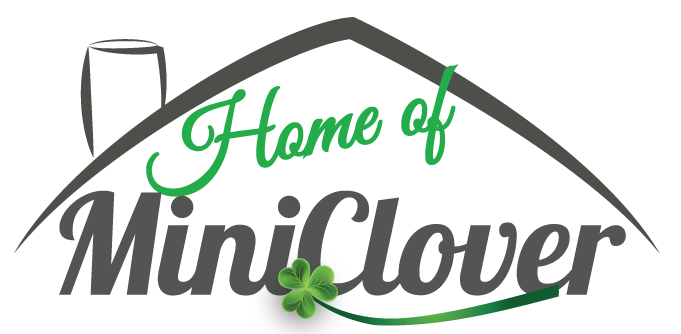-
CATEGORY ::
- All Seeds /
- All Flower Seeds /
- All Gaillardia Seeds



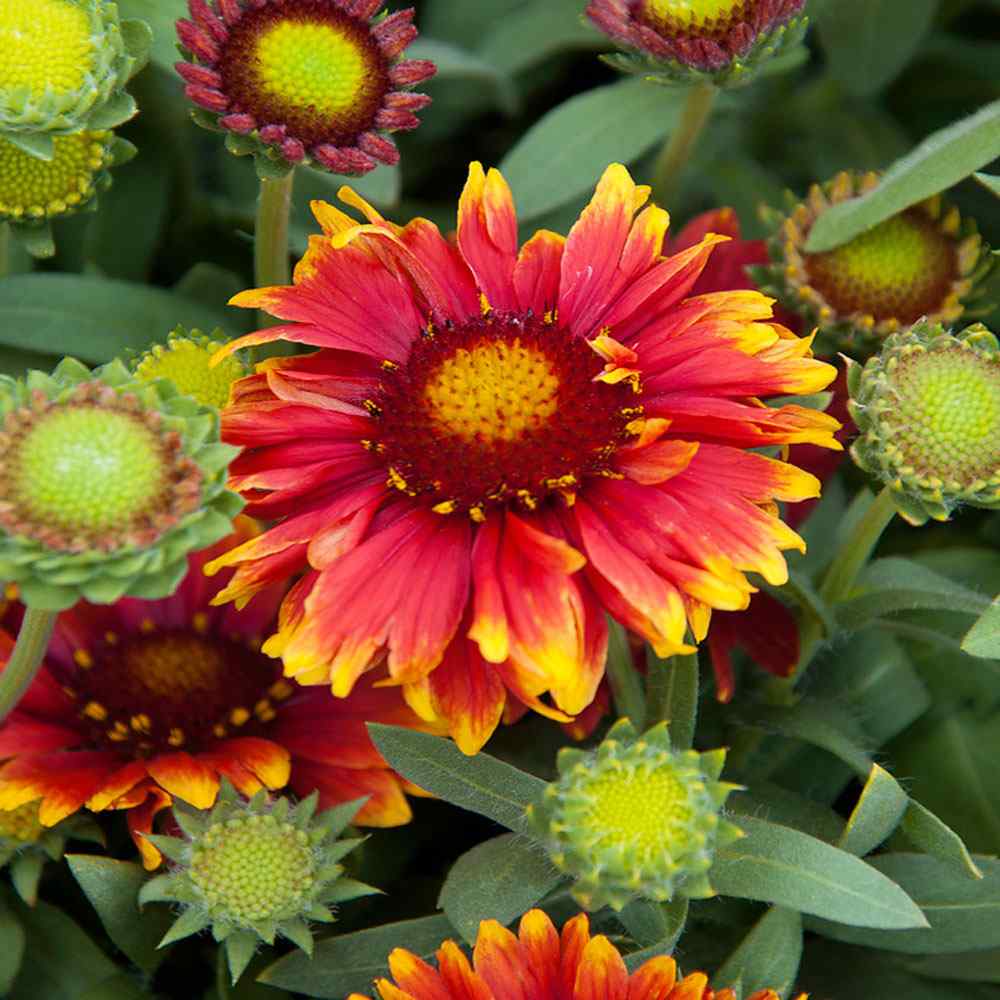
Gaillardia Seeds - Aristata Red Shades
SEASON
Perennial
USDA ZONES
4 - 10
HEIGHT
12 inches
BLOOM SEASON
Summer
BLOOM COLOR
Red
ENVIRONMENT
Full sun
SOIL TYPE
Well-drained, lean, pH 6.2 - 7.2
DEER RESISTANT
Yes
SEEDS PER POUND
131,995
SEASON
Perennial
USDA ZONES
3 -10
HEIGHT
28 - 36 inches
BLOOM SEASON
Summer and fall
BLOOM COLOR
Red
ENVIRONMENT
Full sun
SOIL TYPE
Well-drained, lean, pH 6.2 - 7.2
DEER RESISTANT
Yes
SEEDS PER POUND
153,000
SEASON
Annual
USDA ZONES
3 - 10
HEIGHT
12 - 24 inches
BLOOM SEASON
Summer and fall
BLOOM COLOR
Red and yellow
ENVIRONMENT
Full sun
SOIL TYPE
Well-drained, lean, pH 6.2 - 7.2
DEER RESISTANT
Yes
SEASON
Perennial
USDA ZONES
3 - 10
HEIGHT
20 - 30 inches
BLOOM SEASON
Summer and fall
BLOOM COLOR
Yellow
ENVIRONMENT
Full sun
SOIL TYPE
Well-drained, lean, pH 6.2 - 7.2
DEER RESISTANT
Yes
SEASON
Perennial
USDA ZONES
3 - 10
HEIGHT
20 - 30 inches
BLOOM SEASON
Summer and fall
BLOOM COLOR
Scarlet
ENVIRONMENT
Full sun
SOIL TYPE
Well-drained, lean, pH 6.2 - 7.2
DEER RESISTANT
Yes
SEASON
Annual
USDA ZONES
3 - 10
HEIGHT
10 inches
BLOOM SEASON
Summer and fall
BLOOM COLOR
Red and yellow
ENVIRONMENT
Full sun
SOIL TYPE
Well-drained, pH 6.2 - 7.2
DEER RESISTANT
Yes
SEASON
Annual
USDA ZONES
3 - 10
HEIGHT
10 inches
BLOOM SEASON
Summer and fall
BLOOM COLOR
Red
ENVIRONMENT
Full sun
SOIL TYPE
Well-drained, pH 6.2 - 7.2
DEER RESISTANT
Yes
SEASON
Annual
USDA ZONES
3 - 10
HEIGHT
10 inches
BLOOM SEASON
Summer and fall
BLOOM COLOR
Cream
ENVIRONMENT
Full sun
SOIL TYPE
Well-drained, pH 6.2 - 7.2
DEER RESISTANT
Yes
About...
Blanket Flower (Gaillardia Aristata Arizona Red Shades) - Arizona 'Red Shades' is a recent introduction with dark orange-red flowers. With modest deadheading this selection will bloom all summer thriving in full, hot sun and poor soils with little water. Attractive to butterflies, but not deer and rabbits.MORE GAILLARDIA OPTIONS
Planting Directions
TEMPERATURE
70F
AVERAGE GERM TIME
14 - 21 days
LIGHT REQUIRED
Yes
DEPTH
Seeds must be covered thinly, no more than the thickness of the seed
SOWING RATE
3 - 4 seeds per plant
MOISTURE
Keep seeds moist until germination
PLANT SPACING
12 inches
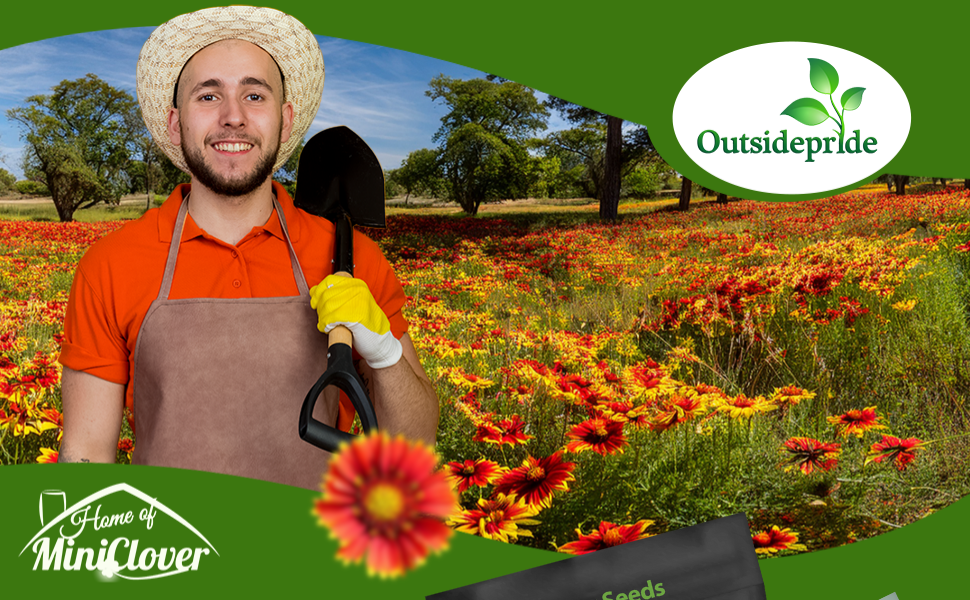
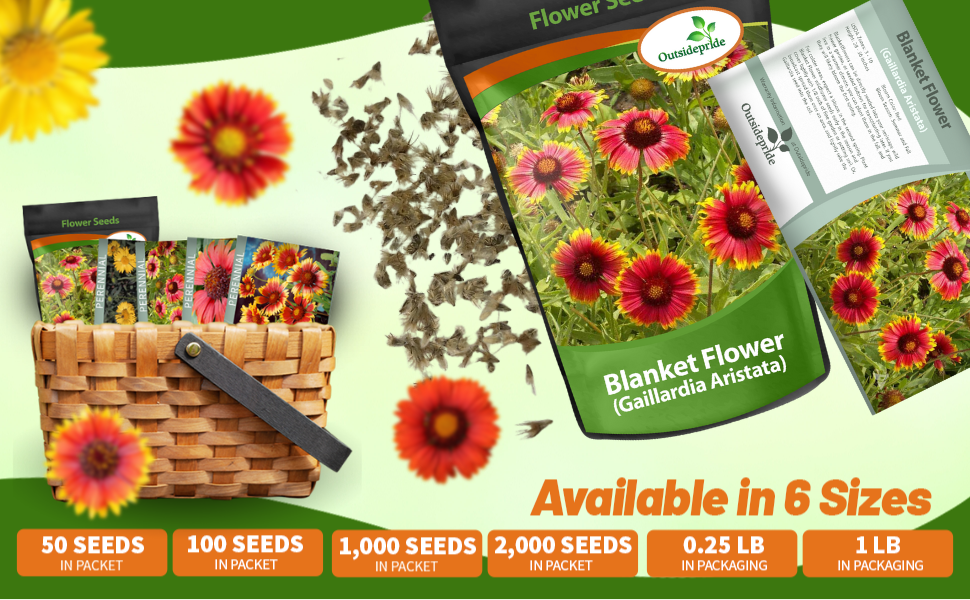
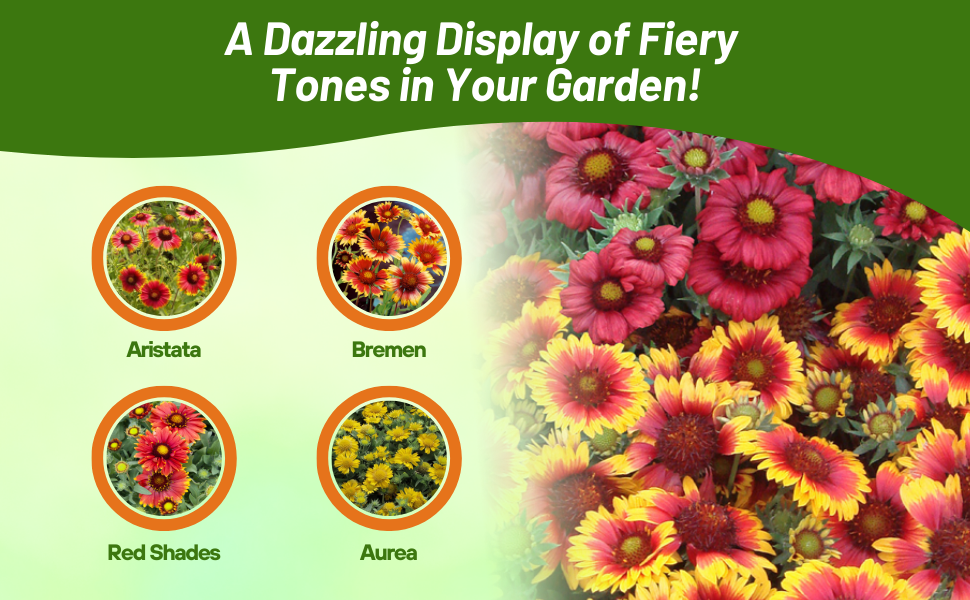
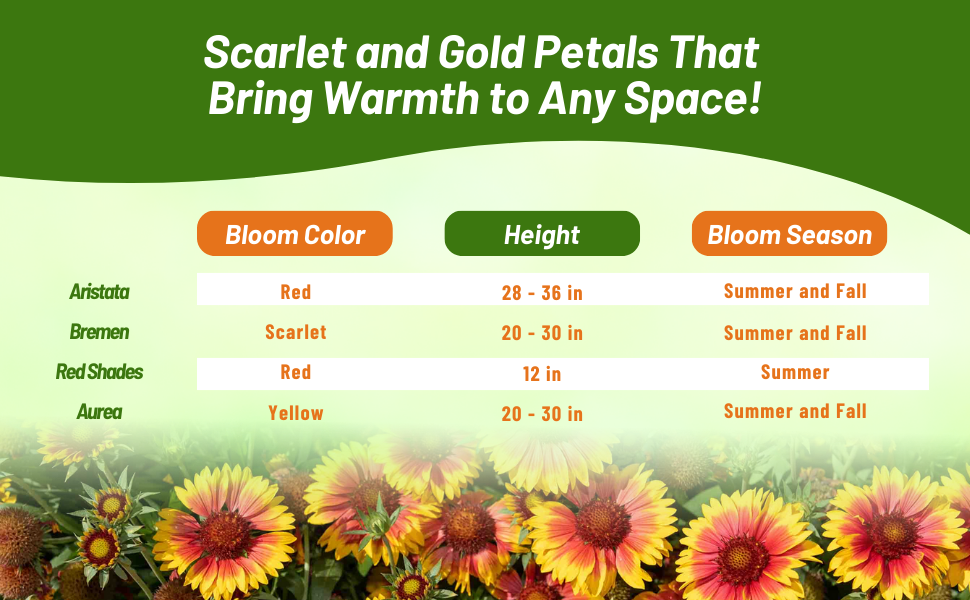
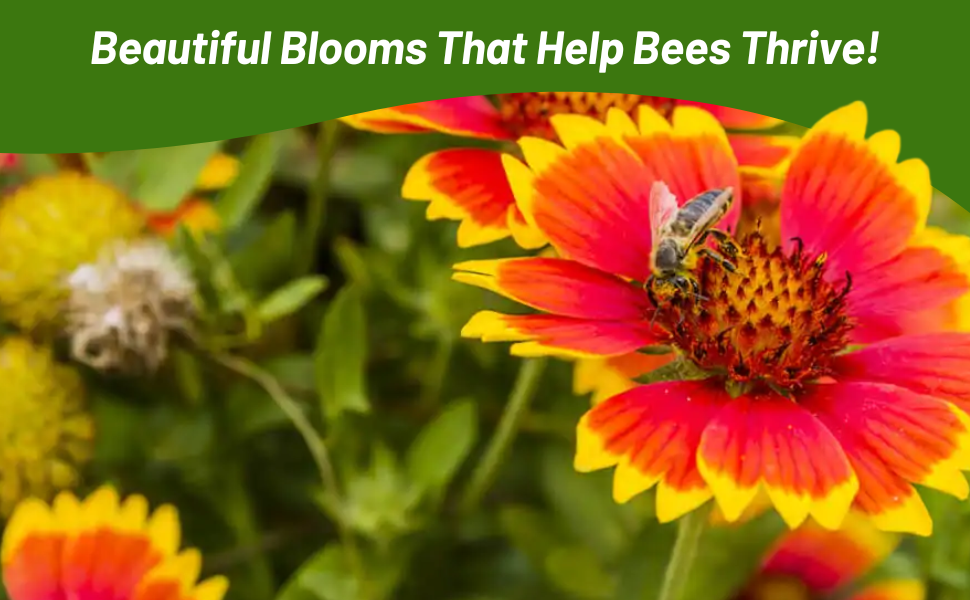
Blanket Flower (Gaillardia Aristata Arizona Red Shades) - Arizona 'Red Shades' is a recent introduction with dark orange-red flowers. With modest deadheading this selection will bloom all summer thriving in full, hot sun and poor soils with little water. Attractive to butterflies, but not deer and rabbits. Blanket Flowers are drought resistant and perfect for xeriscaping. This low growing plant only reaches 12 inches tall and grows as a perennial in USDA Zones 4 - 10. Plants will flower the first year from seed.
These perennials require little care or water once established. They are heat tolerant and actually prefer to be grown in poorer soils. They get their name from the manner in which they used to blanket North American prairies with their blooms. They can still be found in fields and along roadsides in the prairie region and into the Rockies.
If sowing Gaillardia seeds indoors, start 6 - 8 weeks before the last frost, use sterile starting soil and starter trays. Press the flower seeds into the soil and barely cover. Keeps seeds moist until germination. Cut back the Blanket Flower seedlings at transplanting to help it become more compact. If sowing Blanket Flower seeds outdoors, wait until danger of frost has passed. Sow flower seeds into prepared soil, cover lightly with fine garden or potting soil.




















